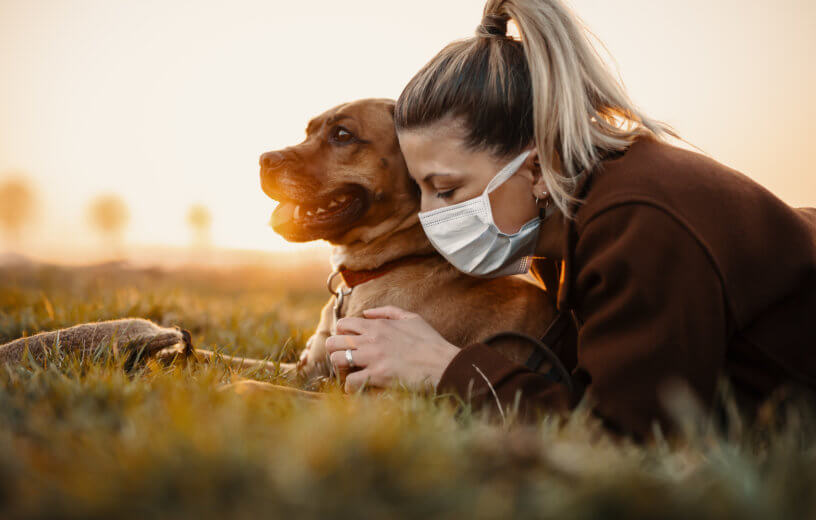ST. LOUIS — Dogs are the light of many pet owners’ lives and now a new study finds they’re also lighting the way out of depression for many Americans. Researchers found that dogs are boosting their owners’ mental health during the coronavirus pandemic.
Study authors say pets have also increased amounts of social support by fueling friendships. The findings come from a review of more than 1,500 people in the U.S. — half of whom own dogs.
“Dog owners reported having significantly more social support available to them compared to potential dog owners, and their depression scores were also lower, compared to potential dog owners,” the study’s corresponding author Dr. Francois Martin of Nestle Purina Research writes in the journal PLOS One.
“There were no differences in anxiety and happiness scores between the two groups. Dog owners had a significantly more positive attitude towards and commitment to pets. Taken together, our results suggest that dog ownership may have provided people with a stronger sense of social support, which in turn may have helped buffer some of the negative psychological impacts caused by the COVID-19 pandemic,” the researchers report.
Dog walking can be a stress reliever
Researchers defined potential dog owners as individuals interested in owning a dog in the future. Both groups answered an online survey during the study. Results show the dog owners also had a significantly more positive attitude towards and commitment to their pets. However, the team did not find any differences in anxiety and happiness scores between these groups.
“Dog walking during confinements may have alleviated stressors and motivated self-care,” Dr. Martin’s team writes.
Other recent studies suggest pet ownership improves mood, leads to less loneliness, greater social support, and less stress by increasing exercise. Owners also said their dogs helped them cope with emotional stressors (91%) and maintain physical activity (96%) during lockdown.
“However, recent studies have also reported that pet ownership during the COVID-19 pandemic may have negatively affected people because of limited availability to resources,” the researchers write, noting that these resources include veterinary care and pet supplies.
“The present study aimed to understand if pet dogs offered their owners social support and contributed to better wellbeing during the COVID-19 pandemic,” they continue. “It was hypothesized that pet dog ownership would act as a buffer against negative impacts caused by the pandemic.”
Each group answered validated “psychometric” questionnaires on depression, anxiety, and happiness.
“Other types of pets are also likely to provide social support to humans. However, it is unclear if this support is equivalent and if the psychological mechanisms involved are the same as human-dog relationships,” Dr. Martin writes.
Furry friends help during difficult times
In the context of the pandemic, there is emerging evidence the relationship and attitude of people towards their pets may vary according to the species. Therefore, the team only included dog and potential dog owners in the investigation. All the participants were over 18 years of age.
Study authors excluded people owning other types of pets or those who failed to complete the entire survey. Those who owned more than one dog were asked to answer for the pet they felt closest to. The final sample comprised 1,535 volunteers, including 768 and 767 dog and potential dog owners, respectively.
“The COVID-19 pandemic has negatively affected diverse populations and our results provide evidence that pet owners and potential pet owners have also been impacted,” Dr. Martin concludes.
“Our results show that pet dog owners were significantly less depressed than non-pet owners during the COVID-19 pandemic. They are attached and committed to their dogs and they reported more social support available to them. Our work adds to the corpus of scientific literature demonstrating that pet dogs may positively contribute to the wellbeing of owners during difficult times.”
Study authors are calling for more work to better understand the relationship between pet ownership and well-being. Future research, the team says, would focus on people with low and moderate social support and include owners with diverse dog attachment level.
South West News Service writer Mark Waghorn contributed to this report.
